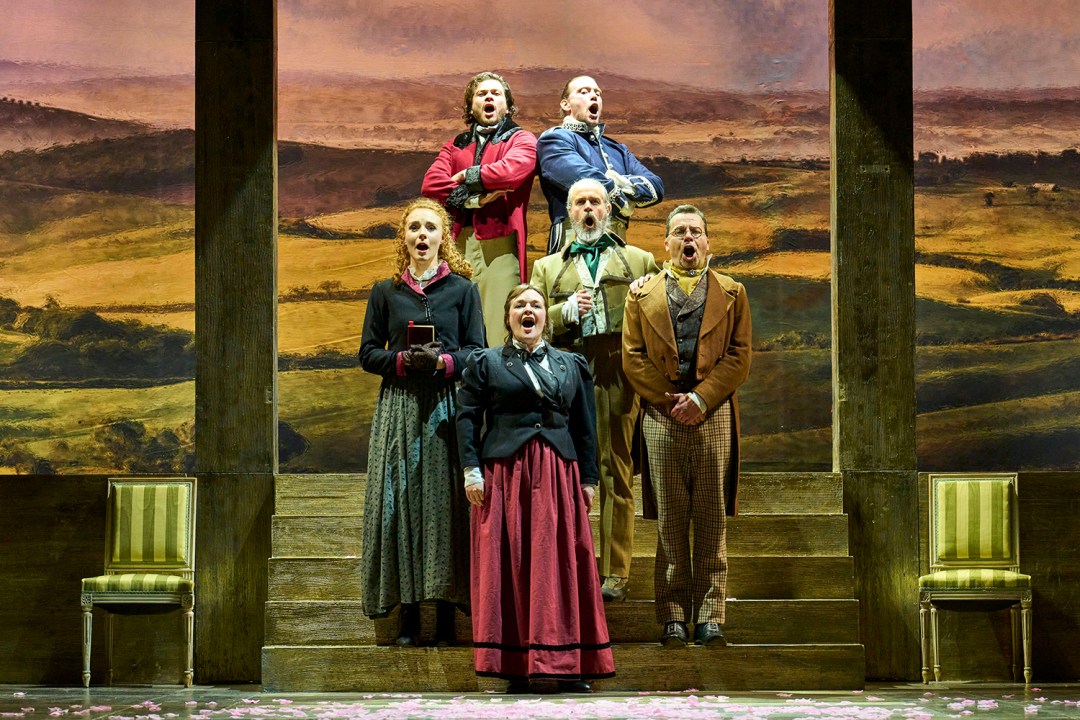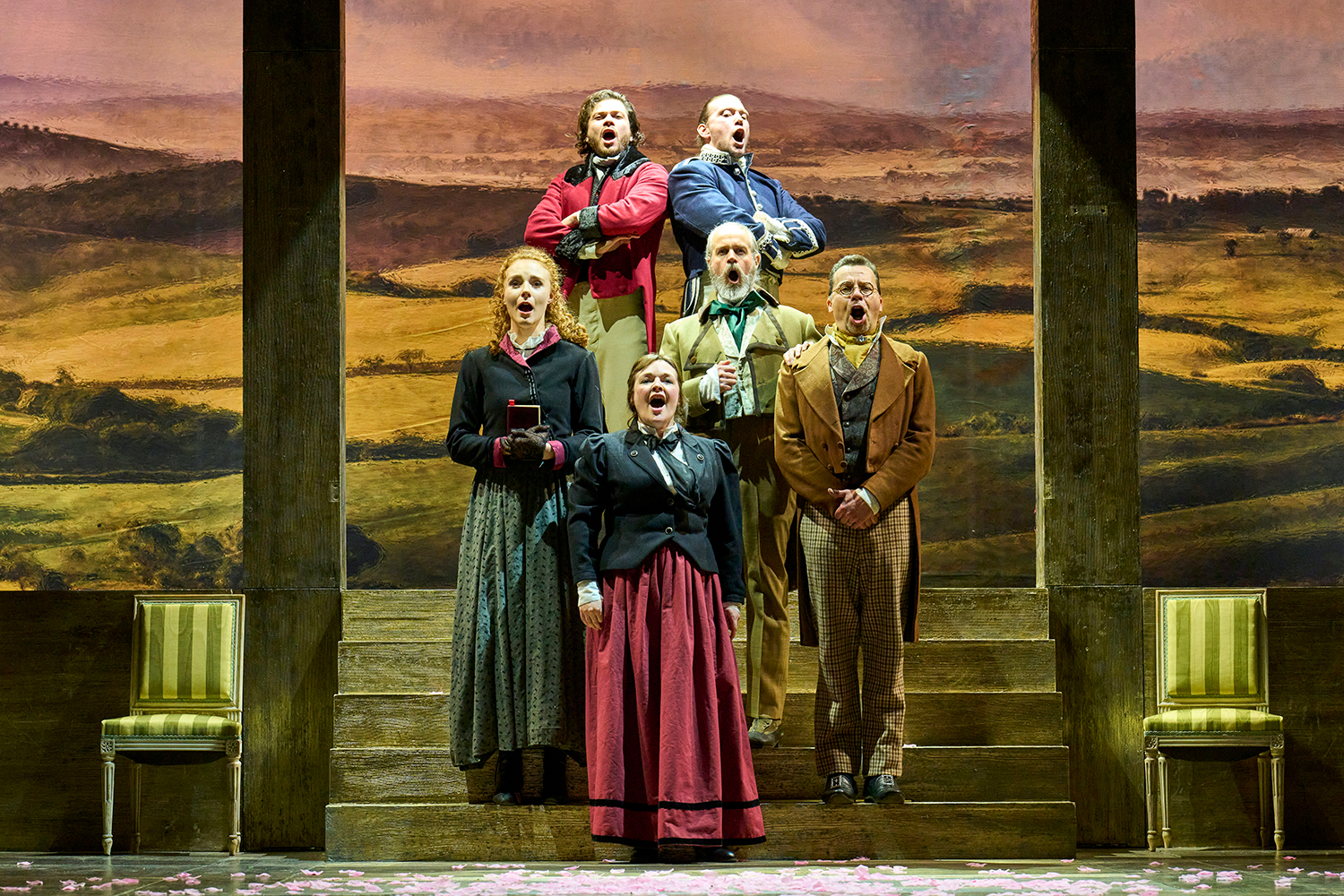Lightning sometimes strikes twice. English Touring Opera hit topical gold last spring when, wholly by coincidence, they found themselves touring with Rimsky-Korsakov’s Russian anti-war satire The Golden Cockerel. Now the company’s general director Robin Norton-Hale insists that their current tour of Rossini’s Il viaggio a Reims – written in 1825 to celebrate the coronation of King Charles X of France – was fixed long before this month’s events at Westminster Abbey were even a glint in the Earl Marshal’s eye.
Really? In truth, opera planning cycles generally operate in years rather than months. On the other hand, Il viaggio a Reims is an extravagant heap of dramatic (if not musical) flummery. Why would anyone who wasn’t a terminal coloratura junkie stage it without pretext? Assorted national stereotypes gather at an inn en route to the coronation in Reims. A shortage of coach horses leaves them stranded, so they throw a party right there instead.
Rossini retired four years later at the age of 37 and spent three decades throwing dinner parties
In the words of Alan Partridge, it really is that simple, and director Valentina Ceschi does her best to jolly along the non-existent drama. Adam Wiltshire’s Bridgerton-ish period costumes are easy on the eye and there are a couple of amusing visual surprises at the ends of Acts One and Two. Meanwhile Rossini revs his engine in neutral and trundles out his huge all-star cast, one after the other, to deliver their insanely florid party pieces. ETO doesn’t really do all-star casts, but pretty much everyone did their best to make something out of the general nonsense: Lucy Hall as the peppery innkeeper, Luci Briginshaw, charmingly ditzy as a fashionista Countess, and Grant Doyle (who never seems to bring anything less than his A game) laying down velvet-voiced drollery by the yard as the Barone di Trombonok.
Susanna Hurrell, meanwhile, as the poetess Corinna, was the one character who seemed to exist in more than two dimensions: singing with unforced poise and moving with a self-possession that made the whole show seem to pause and reorient itself around her appearances.









Comments
Join the debate for just £1 a month
Be part of the conversation with other Spectator readers by getting your first three months for £3.
UNLOCK ACCESS Just £1 a monthAlready a subscriber? Log in